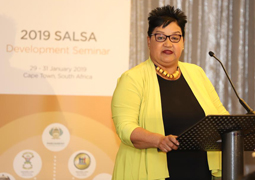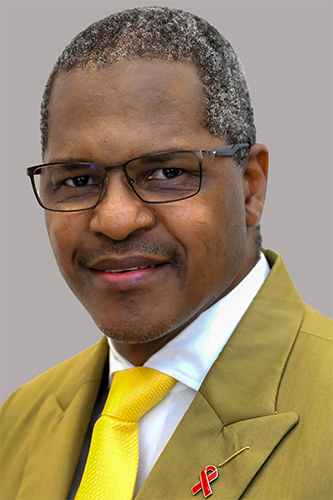
The 2019 Secretaries’ Association of the Legislatures of South Africa (Salsa) Development Seminar is currently underway in Cape Town from 29 to 31 January. The development seminar is meeting under the theme: Building stronger legislatures through collaboration, with the aim of putting Salsa at the centre of strategic development in the legislative sector.
In her opening remarks, the Speaker of the Western Cape Provincial Legislature, Ms Sharna Fernandez, stated that the success of the sector depends on how it interprets “the rules of political systems, engagements, obligations as stipulated in our Constitution and our guiding principles that define our institutions and what powers they have and how they should use their power.”
This would ensure that the sector is at the coal face of the “realisation of human rights and full development of citizenry, to ensure that the objectives of sustainable development goals, such as gender equality, clean water, creation of decent work and economic development are realised.”
To achieve this, Ms Fernandez says, there is a need for the sector to have an effective and efficient oversight mechanism. “We should ask not how it should be done, but why it is done. In achieving that we need to harness the cutting-edge knowledge and information to critique how oversight is done. Serious dialogue is needed in this regard.”
There is no better way to do that, she observed, than to reflect on the achievements of the fifth Parliament within the context of South Africa’s 25 years of democracy. Such a reflection is crucial to determine how oversight is linked to the National Development Plan, the African Union Africa Agenda and the Southern African Development Community Master Plan.
“This calls upon us to do internal planning between the three tiers of governance in a more coordinated way that would improve the alignment of oversight to ensure that the sector oversight work is aligned to the ideals of these local, regional and continental platforms.”
The alignment of oversight mechanisms in the sector could address challenges that hinder collaboration, she said. “Collaboration in the sector could lead to good governance, promotion of democratic values, justice and the rule of law.” She also added that engagement and dialogue around these issues is needed.
However, corruption could be an obstacle for democracy, Ms Fernadez believes. “We must ensure that public employees are servicing the public interest rather than a given political agenda. This needs to be addressed urgently in the sixth Parliament.”
Despite the challenges experienced during the fifth Parliament, there are pockets of excellence within the legislative sector that need to be replicated to ensure that we remain competitive globally, Ms Fernadez urged. In the fifth Parliament, “Citizens questioned the values and the purpose of the sector and it has been under great scrutiny than ever before. To turn this around the professionals in the sector must make good on the constitutional mandate afforded to us,” said Ms Fernandez.
“We must establish an effective platform for employment creation that will bring down the unemployment rate in the next generation. In this seminar we are expected to reflect on the achievement in the past years and how these achievements can have an impact on the future,” Ms Fernandez concluded, as she welcomed delegates to the seminar.
By Abel Mputing

